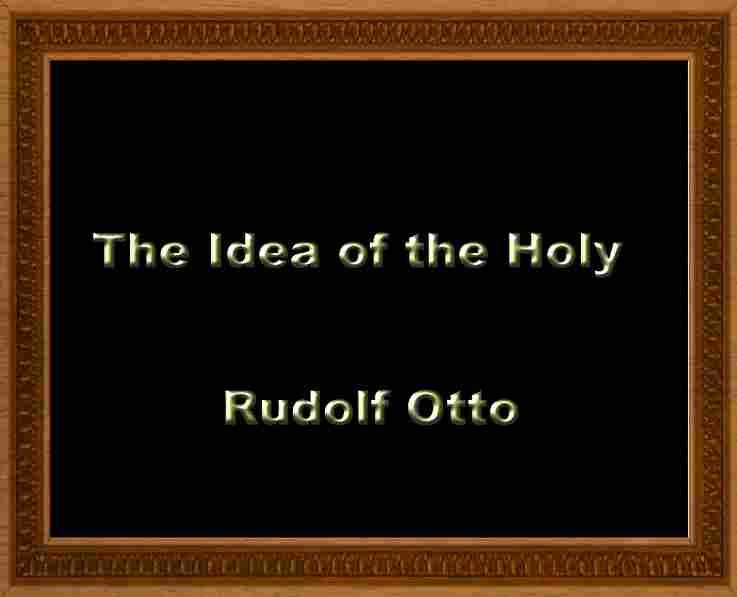

Rather, the contrast between these two influential books demonstrates the presence of an issue that has persisted in the interpretation of religion. This is not because of any direct response by Otto to Durkheim as far as can be told, they never met in person, nor did the German theologian and the French sociologist discuss each other's works. To situate Otto in European intellectual history, it will be useful to discuss Durkheim briefly.

Otto, by contrast, asserts the autonomy of religion in the sphere of its own activity and its status as a response to a power transcending the human.Ī landmark among theories of religion, Otto's book appeared only five years after the major work by the French sociologist Émile Durkheim (1858 –1917), Les Formes él émentaires de la vie religieuse.

Otto's position is diametrically opposed to what has come to be called reductionism, that is, the explanation of religion as a creation of human culture, a response to psychological or social needs that is in some sense the product of those needs. Published in an age of high hopes for science, it has as a central concern the assertion of the autonomy of religion.

Rudolf Otto's work during the first half of his career culminated with his publication, at the age of forty-eight, of Das Heilige (1917), translated as The Idea of the Holy (1923). The influence of Otto’s views still influences theological, religious, and philosophical discourse to date.HOLY, IDEA OF THE. Otto felt people should first do a serious rational study of God, before turning to the non-rational element of God as he has done in his own work ‘The idea of Holy’. They are used to explain numinous to show its uniqueness and separation from normal human experiences. Terminologies like Ganz Andrere and sui generis which respectively mean completely different and incomparable. It is something totally different and incomparable whereby a person finds him/herself in an uncomfortable state of mind. For him, it is rather an irrational and non-sensory feeling. He argues r eligious experiences are qualitatively different from other emotions. Is numinous something rationalĪccording to Otto, numinous has nothing to do with rationale, human intellect, and sense. He defines it as a uniquely intensive emotional experience that is common to all organized religions of the world. In his most famous written work,’ The ideas of the Holy, Rudolph Otto argues ‘numinous’ is the defining element of any religious experience. His concept of numinous about religion gave him fame and popularity as an established scholar on religion and science. Rudolf Otto (1869–1937) is one of the most influential scholars on religion of the early twentieth century.


 0 kommentar(er)
0 kommentar(er)
